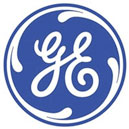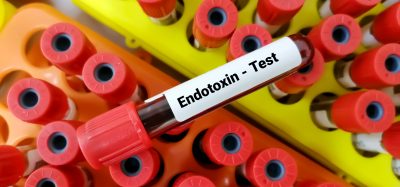Development of biosensor assays for fragment screening of wild type GPCRs
European Pharmaceutical Review is proud to present this webinar, sponsored by GE Healthcare, which was broadcasted live on the 5th November 2015. The topic was G-protein coupled receptors (GPCRs); their use as drug targets, and how assays are being improved for fragment screening of wild type GPCRs.
Our keynote speakers on this topic were Dr. Iva Navratilova, Chief Scientific Officer at Kinetic Discovery, University of Dundee and Dr. Tim Fagge, Application Specialist, GE Healthcare.
GPCRs are the primary target class of currently marketed drugs, accounting for around a third of all drug targets of approved medicines. Dr. Iva Navratilova works with Surface Plasmon Resonance (SPR), and GPCRs are one of their main focuses. SPR offers measurement of biomolecular interactions in real time without the need for labelling. Fragment screening of wild type GPCRs using this technique with optimised membrane protein assays is an alternative ligand discovery strategy, and has proved more beneficial than current screening efforts as it directly measures GPCR-ligand interactions, independent of the binding site. In her presentation Iva goes through the applications of this technique, as well as future developments (for example the use of SPR assays for a large variety of membrane proteins).
Dr. Tim Fagge then introduced us to GE Healthcare’s new SPR-based sensor, the Biacore S200. This was used in collaboration with Maybridge to run Clean Screen campaigns involving >2700 fragments from the Maybridge Ro3 library. By screening for undesirable binding behavior to the sensor surface matrix, a library of fragments that is better prepared for FBDD campaigns using Biacore Systems has been established. As fragments inherently exhibit low affinities, high concentrations are typically required in screening assays; many fragment libraries are therefore designed for solubility at high concentrations (mM). But this optimisation does not remove the possibility of sticky substances that can lower the data quality; so in order to minimise the need for repeat experiments it is important to identify and subsequently remove these compounds prior to binding and/or affinity analysis. Tim explains the dedicated Clean Screen tool which Biacore systems have; this performs a pre-analysis elimination of undesirable sticky compounds so that efficient identification can take place.
Keynote speakers
Dr. Iva Navratilova, University of Dundee


Dr. Navratilova received a Ph.D. from the Department of Biochemistry at Masaryk University (Czech Republic). After finishing her PhD she moved to Salt Lake City, Utah, USA, where at the University of Utah, under supervision of Prof. David Myszka, she developed the first biosensor methods for detection of binding interactions for GPCRs and small molecules. After three years of post-doctoral position in Utah she moved to the United Kingdom, where she continued at Pfizer developing new methods for Biacore technology and successfully applied SPR analysis for large variety of drug targets including GPCRs and kinases.
Dr. Tim Fagge, Senior sales & applications specialist, GE Healthcare Lifesciences division


Additionally Tim works closely with Director of strategic customer relations manager within a global strategic team to develop and capitalise upon new and emerging growth opportunities for Biacore technology particularly in PD, QC and regulated environments. Special focus on biosimilars and ADCs. Managing strategic research collaborations and working globally with our key customers to enhance Biacore brand and establish it as the key technology for use in QC release testing and Biosimilar CQA determination and comparability testing.
Prior to joining GE Tim has over 15 years’ experience in clinical testing, analytical test development, bioprocessing, downstream purification, new product design and applications support for biosensing technologies.
Supported by GE Healthcare
GE Healthcare provides transformational medical technologies and services that are shaping a new age of patient care. Their broad expertise in medical imaging and information technologies, medical diagnostics, patient monitoring systems, drug discovery, biopharmaceutical manufacturing technologies, performance improvement and performance solutions services help their customers to deliver better care to more people around the world at a lower cost. In addition, they partner with healthcare leaders, striving to leverage the global policy change necessary to implement a successful shift to sustainable healthcare systems. GE Healthcare employees are committed to serving healthcare professionals and their patients in more than 100 countries.
Find out more: www3.gehealthcare.com
Related topics
Assays, Biosensors, G protein-coupled receptors (GPCRs), Label-free screening






